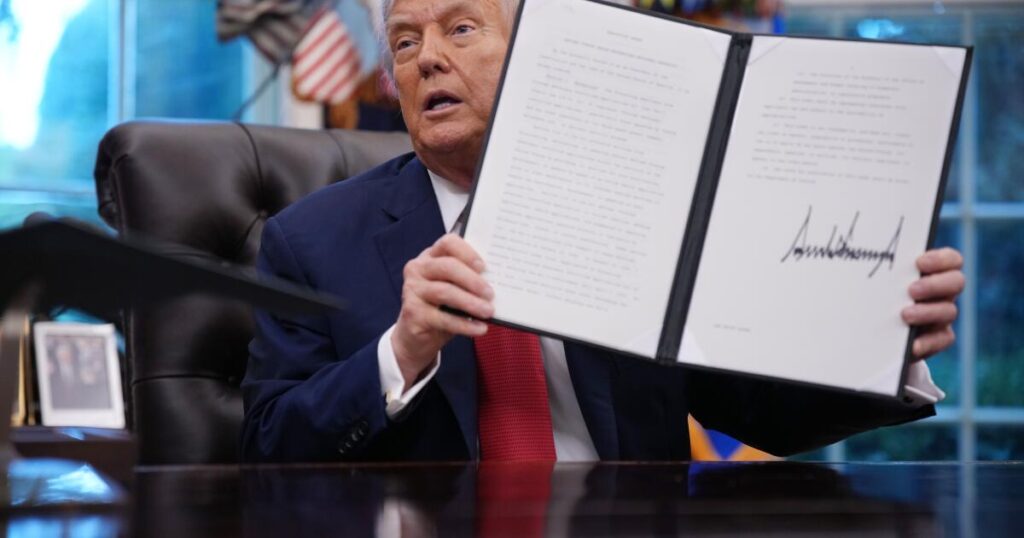
UPDATE: The Supreme Court has just cleared the way for President Trump to remove transgender markers from new U.S. passports, a decision that could significantly impact countless transgender individuals across the nation. In a decisive 6-3 vote, the justices granted an emergency appeal from Trump’s lawyers, effectively putting on hold a Boston judge’s ruling that had blocked the new policy.
The court’s unsigned order stated, “Displaying passport holders’ sex at birth no more offends equal protection principles than displaying their country of birth.” This controversial ruling allows applicants to designate their sex based solely on their assigned gender at birth, igniting fierce debates about the implications for transgender rights.
Justice Ketanji Brown Jackson led the dissent, arguing that the policy poses a direct threat to the safety of transgender travelers. She highlighted the dangers faced by individuals with gender-incongruent passports, stating, “The current record demonstrates that transgender people who use gender-incongruent passports are exposed to increased violence, harassment, and discrimination.”
This urgent ruling follows Trump’s broader initiative to roll back protections for transgender individuals, including his decision to exclude transgender troops from the military. Upon taking office in January, Trump began directing government agencies to erase references to gender identity from official documents, including passports.
The American Civil Liberties Union (ACLU) has taken legal action against the new passport policy, arguing that it infringes upon the rights of transgender individuals. They contend that the new policy undermines the very purpose of passports, which should allow safe and accurate travel for all citizens.
In a previous ruling, U.S. District Judge Julia Kobick blocked Trump’s policy, emphasizing that transgender individuals seek the same travel freedoms as all Americans—without the fear of misidentification or violence.
The ACLU’s appeal emphasized the need for passports that reflect an individual’s identity, arguing that the current administration’s policy would make it difficult for transgender citizens to travel safely. “By classifying people based on sex assigned at birth… the State Department deprives plaintiffs of a usable identification document and the ability to travel safely,” they stated.
In response, Solicitor General D. John Sauer argued that the plaintiffs have no authority over official identification documents. He insisted that the justices should allow the new policy to take effect, asserting that private citizens cannot mandate the government to use what he termed “inaccurate sex designations.”
As the implications of this ruling unfold, many are left wondering what this means for the future of transgender rights in the United States. This decision could also set a precedent affecting other gender-related issues in government policies.
NEXT STEPS: As the situation develops, advocates and organizations focused on transgender rights are expected to ramp up efforts to challenge this ruling. The impact on transgender individuals seeking passports will be closely monitored, and further legal challenges may arise in response to this significant judicial decision.
The urgency of this ruling cannot be overstated, as it marks a pivotal moment in the ongoing debate over transgender rights in America. Individuals and organizations are encouraged to stay informed and engaged as this story continues to evolve.





